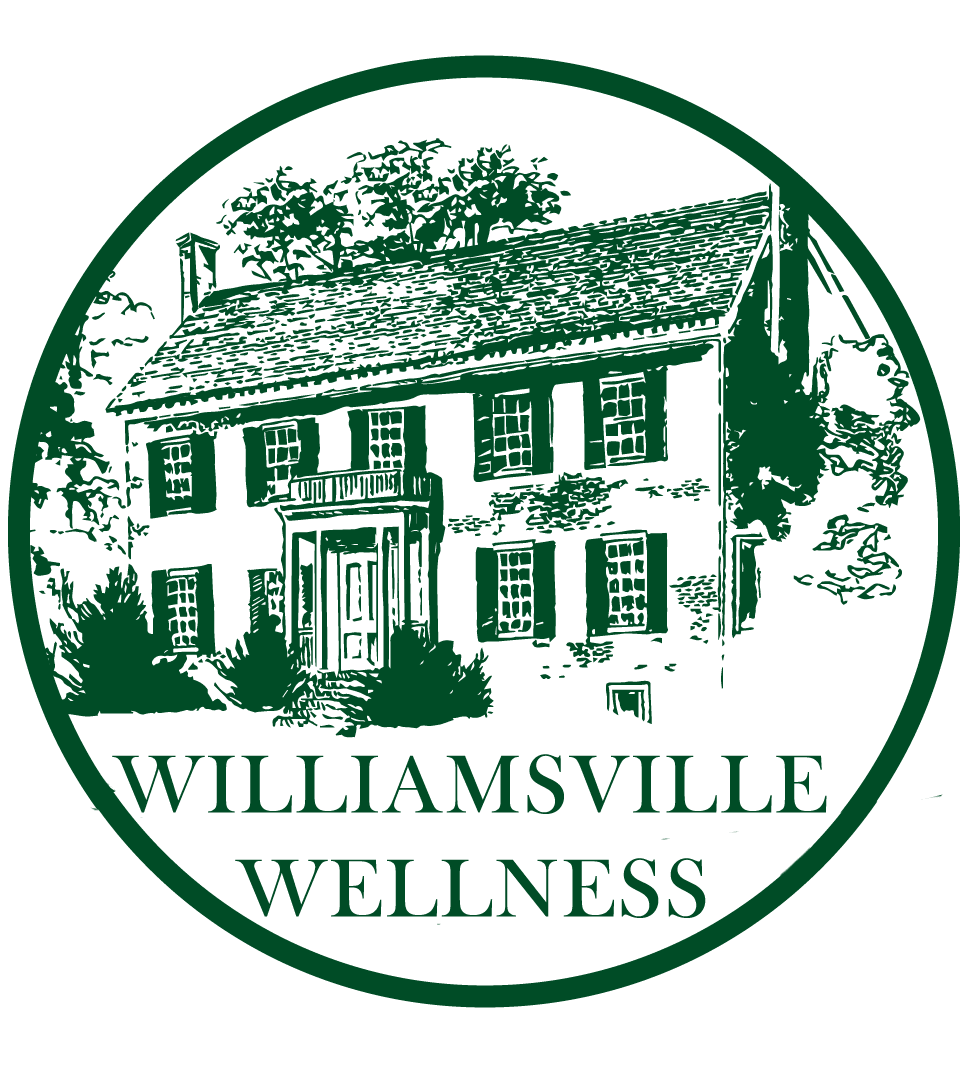Lawyers and Addiction: Breaking the Silence in the Legal Profession
Why over 20% of attorneys struggle with problematic drinking and how legal professionals can achieve sustained recovery with specialized treatment programs.
📚 What You'll Discover in This Guide
- The Shocking Statistics Behind Lawyer Addiction
- Why Legal Careers Create the Perfect Storm for Addiction
- The Role of Workplace Culture in Attorney Substance Abuse
- Mental Health Crisis Among Legal Professionals
- Why Young Lawyers Are Most at Risk
- Barriers That Prevent Lawyers from Seeking Help
- Specialized Treatment Solutions for Legal Professionals
- The Path to Recovery: Success Stories and Hope
- How to Get Help Without Jeopardizing Your Career
The legal profession has long been associated with prestige, success, and intellectual rigor. However, beneath the polished exterior of law firms and courtrooms lies a troubling reality that the profession has only recently begun to acknowledge: lawyers experience addiction and mental health disorders at alarmingly high rates.
Recent comprehensive research reveals that legal professionals face substance abuse rates nearly double those of the general population, creating a silent crisis that affects not only the attorneys themselves but also their clients, families, and the integrity of the legal system as a whole.
For decades, the legal community operated under a culture of silence around addiction and mental health issues. The competitive nature of law, combined with concerns about professional reputation and career consequences, created an environment where struggling attorneys suffered in isolation. This silence has profound consequences: impaired judgment, ethical violations, malpractice claims, and in tragic cases, loss of life.
The stigma surrounding addiction in the legal profession runs particularly deep because lawyers are expected to be problem-solvers, decision-makers, and moral leaders in society. Admitting to addiction can feel like an admission of professional failure, leading many attorneys to hide their struggles until crisis points are reached. Understanding the scope of addiction in the legal profession is crucial for breaking this cycle of silence and shame.
Recent groundbreaking studies have finally quantified what many in the profession suspected: lawyers struggle with alcohol addiction and other substance abuse issues at rates that far exceed those of similarly educated professionals. These statistics aren't just numbers; they represent thousands of attorneys whose careers, relationships, and lives are affected by untreated addiction.

Long hours and intense pressure contribute to high stress levels among legal professionals
The Shocking Statistics Behind Lawyer Addiction
The most comprehensive study on lawyer addiction and mental health was conducted in 2016 by the American Bar Association (ABA) in collaboration with the Hazelden Betty Ford Foundation. This landmark research surveyed 12,825 licensed, employed attorneys across the United States, providing the first reliable data on the scope of addiction in the legal profession.
The results were staggering. More than one in five lawyers (20.6%) screened positive for problematic drinking behaviors that are considered hazardous, harmful, or potentially indicative of alcohol dependence. When examining lifetime patterns, the numbers become even more alarming: 36.4% of attorneys showed scores consistent with alcohol abuse or dependence at some point in their careers.
These rates are substantially higher than those found in other professional populations. For comparison, only 11.8% of medical professionals screen positive for similar alcohol-related problems, despite working in equally demanding environments. The legal profession's rates are also significantly higher than the general population, where lifetime alcohol abuse or dependence affects approximately 13.7% of adults.
Beyond alcohol, the study revealed concerning patterns of prescription and illicit drug use among attorneys. While alcohol accounts for the vast majority of substance abuse cases in the legal profession, approximately 9% of lawyers report problems with prescription drugs, and smaller percentages acknowledge issues with illegal substances like cocaine and marijuana.
The mental health statistics accompanying these addiction rates paint an equally troubling picture. Twenty-eight percent of lawyers experience depression, 19% struggle with anxiety, and 23% report significant stress levels. Perhaps most concerning, 11.5% of attorneys have experienced suicidal thoughts at some point in their careers.
⚖️ Professional Impact
Research shows that attorneys with substance abuse issues are significantly more likely to face disciplinary action, malpractice claims, and professional sanctions, affecting their ability to serve clients effectively.
These statistics become even more meaningful when compared to historical data. A 1990 study found that 18% of lawyers were "problem drinkers," suggesting that the situation may have worsened over the past three decades. However, the 2016 study used more sophisticated screening tools and larger sample sizes, making direct comparisons challenging.
The geographic and demographic variations within these statistics reveal additional insights. Lawyers in certain practice areas, firm types, and geographic regions show higher rates of problematic drinking and mental health issues. Private practice attorneys, particularly those in high-pressure corporate environments, tend to have higher rates than those in government or non-profit settings.
What makes these statistics particularly alarming is that they likely represent an undercount of the actual problem. Many attorneys struggling with addiction may not have participated in the survey, and others may have underreported their substance use due to concerns about confidentiality and professional consequences.

Research reveals unprecedented levels of addiction and mental health challenges in the legal profession
Why Legal Careers Create the Perfect Storm for Addiction
The legal profession possesses unique characteristics that create an environment particularly conducive to the development of addiction and mental health disorders. Understanding these factors is crucial for both prevention and treatment efforts within the legal community.
From the moment students enter law school, they encounter intense pressure and competition that continues throughout their careers. Law school rankings, grades, law review participation, and securing prestigious internships create a high-stress environment where students learn to cope with overwhelming demands. Many develop unhealthy coping mechanisms during this formative period that persist into professional practice.
The adversarial nature of legal work creates chronic stress that differs significantly from other professions. Lawyers must constantly prepare for conflict, whether in litigation, negotiations, or client advocacy. This perpetual state of high alert can be emotionally and physically exhausting, leading many attorneys to seek relief through alcohol or other substances.
High-Stakes Decision Making
Lawyers make decisions that can dramatically impact clients' lives, careers, freedom, and financial well-being, creating immense psychological pressure and stress.
Billable Hour Pressure
The billable hour system creates relentless pressure to work long hours, often sacrificing personal time, relationships, and self-care to meet financial targets.
Perfectionist Culture
Legal work demands extreme attention to detail where small errors can have major consequences, fostering perfectionist tendencies that increase anxiety and stress.
Client Expectations
Lawyers must manage demanding clients, unrealistic expectations, and complex legal problems while maintaining professional composure and confidence.
The billable hour system, which dominates many law firms, creates additional pressures that contribute to addiction risk. Attorneys must document and bill for their time in six-minute increments, creating constant pressure to be productive. This system often leads to 70-80 hour work weeks, leaving little time for exercise, adequate sleep, healthy meals, or stress management activities.
Law firm culture, particularly in large corporate firms, often glorifies overwork and sacrifice. Attorneys who work extreme hours are praised and rewarded, while those who seek work-life balance may be viewed as less committed. This culture normalizes unhealthy behaviors and discourages help-seeking when problems arise.
The financial pressures facing many attorneys also contribute to addiction risk. Law school debt, which averages over $170,000 nationally, creates enormous pressure to secure high-paying positions and maintain expensive lifestyles. Even successful attorneys often feel trapped by their financial obligations, unable to reduce their workload or seek help without jeopardizing their income.
Many lawyers also experience secondary trauma from their work, particularly those in criminal law, family law, or personal injury practice. Constant exposure to clients' traumatic experiences, violence, abuse, and human suffering can lead to post-traumatic stress disorder (PTSD) and secondary traumatic stress. Research shows that 11% of criminal attorneys meet criteria for PTSD, significantly higher than the general population.
The isolation that many attorneys experience compounds these stressors. Legal work often involves long hours alone with documents, research, and writing. Many attorneys work in competitive environments where showing vulnerability or seeking help is discouraged. This isolation prevents attorneys from developing the social support networks that are crucial for managing stress and preventing addiction.
Technology has intensified many of these pressures. Smartphones and constant connectivity mean that attorneys are never truly "off duty." Clients expect immediate responses to emails and phone calls, even outside traditional business hours. This constant availability increases stress and prevents the mental rest necessary for psychological well-being.

The demanding nature of legal work creates chronic stress and isolation
The Role of Workplace Culture in Attorney Substance Abuse
The culture within law firms and legal organizations plays a significant role in enabling and perpetuating substance abuse among attorneys. Understanding this culture is essential for creating meaningful change in the profession's approach to addiction and mental health.
Alcohol has been deeply embedded in legal culture for generations. Law firms routinely host happy hours, client entertainment events, bar association gatherings, and celebration parties where alcohol consumption is not only expected but encouraged. Many law firms keep alcohol in their offices, normalizing drinking as part of the work environment.
Research conducted at Wichita State University found that 66% of attorneys reported work-related drinking, while 77% of attorneys with self-reported alcohol problems acknowledged drinking during lunch. These statistics highlight how workplace culture facilitates and normalizes alcohol consumption among legal professionals.
The "work hard, play hard" mentality prevalent in many law firms creates an environment where heavy drinking is viewed as a legitimate way to decompress from intense work pressures. Young associates, eager to fit in and advance their careers, often participate in these activities even if they would prefer not to drink or recognize that their alcohol consumption is becoming problematic.
Many law firms inadvertently enable substance abuse by treating alcohol consumption as a normal part of professional networking, client relations, and stress relief, creating environments where problematic drinking can develop and escalate without recognition or intervention.
The competitive nature of law firm culture also discourages attorneys from acknowledging problems or seeking help. Showing weakness or vulnerability can be perceived as damaging to career advancement. Partners and senior associates often model behaviors that normalize excessive drinking and overwork, sending clear messages about what is expected for success.
Client development and business relationships in the legal profession frequently center around alcohol. Business dinners, golf outings, sporting events, and other client entertainment activities typically involve drinking. Attorneys who don't drink or who limit their alcohol consumption may feel excluded from important networking opportunities, creating pressure to participate despite personal concerns about their drinking.
The masculine culture that still dominates many areas of the legal profession can be particularly problematic for attorneys struggling with addiction. Traditional masculine ideals of strength, independence, and emotional stoicism discourage help-seeking behaviors and vulnerability. Male attorneys may feel particular pressure to handle their problems independently, leading to delayed treatment and more severe consequences.
Law firm policies and procedures often lack adequate provisions for addressing addiction and mental health issues among attorneys. Many firms have employee assistance programs, but attorneys may be reluctant to use them due to concerns about confidentiality and career impact. The lack of clear policies and supportive leadership around these issues perpetuates the culture of silence.
The partnership track system in many law firms creates additional pressures that can contribute to substance abuse. Associates working toward partnership often feel they cannot show any signs of weakness or reduce their productivity, even when struggling with addiction or mental health issues. This system can prevent early intervention and allow problems to escalate.
Specialization within the legal profession creates additional cultural factors that influence addiction risk. Family law attorneys may face different stressors than corporate lawyers, while criminal defense attorneys encounter unique challenges related to the nature of their clients and cases.

Workplace culture often normalizes alcohol consumption as part of professional networking
Mental Health Crisis Among Legal Professionals
The addiction crisis among lawyers cannot be understood in isolation from the broader mental health challenges facing the profession. The interconnected nature of addiction and mental health disorders creates complex clinical pictures that require specialized understanding and treatment approaches.
According to the landmark ABA study, 28% of lawyers experience depression during their careers, a rate significantly higher than the general population. More concerning is that 9.5% experience mild depression, 10.4% experience moderate depression, 4.0% experience severe depression, and 4.4% experience extremely severe depression. These statistics represent thousands of attorneys struggling with clinical depression while trying to maintain demanding professional responsibilities.
Anxiety disorders affect 19% of lawyers, with rates varying by severity: mild anxiety affects 9.6% of attorneys, moderate anxiety affects 5.3%, severe anxiety affects 2.5%, and extremely severe anxiety affects 1.9%. The high-stress nature of legal work, combined with the uncertainty inherent in many legal outcomes, creates fertile ground for anxiety disorders to develop and flourish.
The relationship between mental health disorders and substance abuse among attorneys follows predictable patterns. Many lawyers begin using alcohol or other substances as a form of self-medication for untreated depression, anxiety, or trauma-related symptoms. What starts as occasional stress relief can quickly develop into dependence, particularly given the easy availability of alcohol in legal settings.
Trauma exposure is particularly high among certain types of attorneys. Criminal defense lawyers, prosecutors, family law attorneys, and personal injury lawyers regularly encounter graphic evidence, hear traumatic testimonies, and witness human suffering. This secondary trauma can lead to the development of PTSD, depression, and anxiety disorders that increase addiction risk.
🧠 Mental Health Connection
Research shows that lawyers with untreated mental health conditions are three times more likely to develop substance abuse problems, highlighting the critical importance of comprehensive mental health care in the legal profession.
Sleep disorders are another significant concern among attorneys. The demanding work schedules, high stress levels, and alcohol use that characterize many legal careers can severely disrupt normal sleep patterns. Chronic sleep deprivation exacerbates mental health symptoms and increases the likelihood of using substances to either stay alert or facilitate sleep.
The perfectionist personality traits that often contribute to success in law school and legal practice can become problematic when they contribute to mental health disorders. Perfectionism has been linked to increased rates of anxiety, depression, and eating disorders. For attorneys, the inability to meet impossibly high standards can trigger shame spirals that lead to increased substance use.
Suicidal ideation represents the most serious mental health concern in the legal profession. The ABA study found that 11.5% of attorneys have experienced suicidal thoughts at some point in their careers, with 2.9% admitting to engaging in self-injurious behavior. These statistics are particularly alarming given the access that many attorneys have to means of self-harm and the isolation that characterizes many legal careers.
The stigma surrounding mental health issues in the legal profession often prevents attorneys from seeking appropriate treatment. Many lawyers fear that acknowledging mental health problems could jeopardize their professional licenses, career advancement, or client relationships. This fear often leads to delayed treatment and more severe symptoms.
The demographic variations in mental health statistics among attorneys reveal important patterns. Younger attorneys, women lawyers, and attorneys in certain practice areas show higher rates of depression and anxiety. These patterns suggest that specific interventions may be needed for different populations within the legal profession.
Comprehensive co-occurring disorders treatment is essential for attorneys who are struggling with both addiction and mental health issues. Traditional approaches that address only the addiction or only the mental health component are often insufficient for achieving lasting recovery in this population.

Mental health support is crucial for addressing the interconnected challenges facing legal professionals
Why Young Lawyers Are Most at Risk
The statistics surrounding addiction and mental health among young attorneys are particularly alarming and point to critical intervention opportunities early in legal careers. Understanding why younger lawyers face disproportionate risks is essential for developing effective prevention and early intervention strategies.
Attorneys under 30 show the highest rates of problematic drinking at 32.3%, compared to 26.1% for attorneys aged 31-40 and even lower rates for older practitioners. This pattern suggests that the early years of legal practice represent a particularly vulnerable period for developing substance abuse problems.
The transition from law school to professional practice creates unique stressors for young attorneys. After three years of academic preparation, new lawyers often feel unprepared for the realities of legal practice. The gap between law school education and actual practice requirements can create anxiety, imposter syndrome, and stress that contribute to substance abuse risk.
Law school debt significantly impacts young attorneys' career choices and stress levels. With average debt loads exceeding $170,000, new lawyers often feel pressured to accept high-paying but demanding positions in corporate law firms. This financial pressure can trap young attorneys in stressful work environments even when they recognize that their work situation is contributing to mental health or substance abuse problems.
Academic to Professional Transition
New lawyers face a steep learning curve transitioning from academic study to real legal practice with significant client responsibilities and professional pressure.
Financial Pressures
High law school debt loads force young attorneys into demanding, high-stress positions to meet financial obligations, limiting their career flexibility.
Professional Identity Formation
Young lawyers are still developing their professional identity and may adopt unhealthy coping mechanisms as part of fitting into legal culture.
Lack of Experience with Stress Management
Many young attorneys have not yet developed effective stress management skills, making them more vulnerable to using substances for stress relief.
The social aspects of early legal careers also contribute to substance abuse risk among young attorneys. Many law firms and legal organizations organize social events around alcohol consumption. Young lawyers, eager to network and fit in with colleagues, may feel pressured to participate in drinking-centered activities even if they would prefer not to consume alcohol.
Young attorneys often lack the experience and perspective to recognize when their drinking or substance use is becoming problematic. Without established patterns of healthy coping mechanisms, they may gradually increase their alcohol consumption without recognizing the warning signs of developing addiction.
The mentorship relationships that are crucial for young attorneys' professional development can sometimes inadvertently model unhealthy behaviors. Senior attorneys who normalize heavy drinking or overwork may unconsciously encourage young lawyers to adopt similar patterns.
Research shows that nearly half of lawyers with drinking problems report that their problematic use began within the first 15 years of their career, including law school years. This timeline suggests that the early professional years represent a critical window for both prevention and early intervention efforts.
Young attorneys may also face unique challenges in seeking help for addiction or mental health issues. They may fear that acknowledging problems early in their careers could permanently damage their professional reputation or advancement opportunities. This fear can prevent them from seeking help during the early stages when intervention is most effective.
The competitive nature of legal education and early practice creates additional pressures for young attorneys. Many feel they must constantly prove themselves and cannot show any signs of weakness or vulnerability. This pressure can prevent them from seeking help or even acknowledging to themselves that they may have a problem.
Technology and social media add additional pressures for younger attorneys who are often expected to be constantly available and maintain professional online presences. The boundary between work and personal life becomes increasingly blurred, contributing to stress and burnout.
Young attorneys in major metropolitan areas may face additional challenges related to the high cost of living, long commutes, and social isolation. These factors can increase stress and reduce opportunities for healthy stress management activities like exercise, hobbies, or maintaining social relationships outside of work.

Young attorneys face unique pressures during the transition from law school to professional practice
Barriers That Prevent Lawyers from Seeking Help
Despite the high rates of addiction and mental health disorders among attorneys, many lawyers never seek professional help for their struggles. Understanding the barriers that prevent attorneys from accessing treatment is crucial for developing effective intervention strategies and reducing the stigma surrounding these issues in the legal profession.
Professional reputation concerns represent the most significant barrier preventing lawyers from seeking addiction treatment. Many attorneys fear that acknowledging substance abuse problems could damage their standing with clients, colleagues, and partners. In a profession where trust and judgment are paramount, lawyers worry that addiction treatment could be perceived as evidence of impaired decision-making abilities.
Licensing and regulatory concerns create additional barriers for attorneys seeking help. While most state bar associations have policies protecting lawyers who voluntarily seek treatment, many attorneys remain unaware of these protections or don't trust that confidentiality will be maintained. The fear of disciplinary action or license suspension can prevent lawyers from acknowledging addiction problems even to themselves.
Confidentiality concerns extend beyond regulatory issues to include worries about client relationships and business development opportunities. Lawyers may fear that seeking treatment could become known to clients, referral sources, or opposing counsel, potentially damaging their practice and professional relationships.
Many lawyers operate under the mistaken belief that seeking treatment for addiction will automatically result in professional consequences, when in reality most state bar associations provide confidential assistance and protection for attorneys who voluntarily seek help for substance abuse issues.
The demanding nature of legal practice creates practical barriers to seeking treatment. Many attorneys feel they cannot take time away from their practice for residential treatment or intensive outpatient programs without jeopardizing their client relationships and professional obligations. The billable hour pressure makes it difficult for lawyers to prioritize their health over immediate work demands.
Financial concerns may also prevent some attorneys from seeking treatment, particularly those in solo practice or small firms without comprehensive health insurance. Even attorneys with insurance may worry about the cost of extended treatment or the loss of income during time away from practice.
The culture of self-reliance that characterizes the legal profession creates psychological barriers to seeking help. Lawyers are trained to solve problems independently and may view acknowledging addiction as a personal failure rather than a medical condition requiring professional treatment.
Lack of awareness about addiction as a medical condition rather than a moral failing prevents many attorneys from recognizing that they need and deserve professional help. The stigma surrounding addiction in society generally is often amplified in professional settings where personal conduct is closely scrutinized.
Geographic barriers can be significant for attorneys practicing in rural or smaller communities where specialized addiction treatment for professionals may not be available. These lawyers may also face additional confidentiality concerns in smaller communities where their participation in treatment programs could become widely known.
🔒 Confidentiality Protection
Most state Lawyer Assistance Programs provide completely confidential help for attorneys struggling with addiction, with strong legal protections that prevent disclosure to disciplinary authorities when lawyers voluntarily seek assistance.
Family and personal relationship factors can create barriers to treatment seeking. Attorneys may worry about the impact of addiction treatment on their family relationships, child custody arrangements, or social standing in their communities. These concerns may be particularly acute for attorneys who hold prominent positions in their communities.
The perfectionist personality traits that often contribute to legal career success can paradoxically prevent attorneys from seeking help for addiction. Acknowledging imperfection or vulnerability may feel incompatible with professional identity and self-image.
Lack of knowledge about specialized treatment options for professionals may prevent attorneys from seeking appropriate help. Many lawyers are unaware that treatment programs specifically designed for legal professionals exist and can address their unique needs and concerns.
Previous negative experiences with mental health or addiction treatment, either personally or through colleagues, may create reluctance to seek help. Attorneys who have heard stories about treatment experiences that didn't respect professional needs or confidentiality may be hesitant to pursue treatment themselves.

Many legal professionals face significant barriers when considering treatment for addiction
Specialized Treatment Solutions for Legal Professionals
Recognizing the unique needs and challenges facing attorneys with addiction, specialized treatment programs have been developed to address the specific concerns of legal professionals. These programs understand the professional, ethical, and practical considerations that lawyers face when seeking recovery.
Lawyer Assistance Programs (LAPs) exist in all 50 states and provide confidential resources for attorneys struggling with addiction and mental health issues. These programs are typically operated by state bar associations and offer a range of services including assessment, referral to treatment providers, peer support, and ongoing monitoring and support throughout recovery.
LAPs are specifically designed to protect attorney confidentiality while providing effective intervention and support services. In most states, participation in LAP services is protected by strong confidentiality provisions that prevent disclosure to disciplinary authorities as long as attorneys voluntarily seek help and comply with treatment recommendations.
Specialized residential treatment programs for professionals address the unique needs of attorneys and other high-functioning professionals. These programs understand the career pressures, perfectionist tendencies, and professional identity issues that characterize many lawyers struggling with addiction.
Confidential Assessment
Comprehensive evaluation that addresses both addiction and mental health concerns while protecting professional confidentiality and understanding legal career demands.
Specialized Treatment Planning
Individualized treatment plans that consider professional obligations, licensing concerns, and career impact while providing evidence-based addiction treatment.
Professional Reintegration
Structured programs that help attorneys transition back to practice with ongoing support, monitoring, and resources for maintaining recovery in legal environments.
Continuing Care
Long-term support systems including peer groups, ongoing therapy, and monitoring programs designed specifically for legal professionals in recovery.
Professional treatment programs typically address the perfectionist traits, high achievement orientation, and control issues that characterize many attorneys. These programs help lawyers develop healthy coping mechanisms while maintaining their professional competence and career advancement opportunities.
Intensive outpatient programs designed for professionals allow attorneys to continue working while receiving treatment. These programs typically offer evening or weekend sessions to accommodate demanding work schedules, and they address workplace stress management, professional ethics in recovery, and career transition issues.
Peer support groups specifically for attorneys provide opportunities for lawyers to connect with colleagues who understand the unique pressures and challenges of legal practice. Groups like Lawyers Concerned for Lawyers and specialized 12-step meetings for legal professionals offer safe spaces for attorneys to share experiences and support each other's recovery.
Family therapy and couples counseling adapted for legal professionals address the impact of legal careers on relationships and family dynamics. These services help repair relationships damaged by addiction while developing healthier patterns of work-life balance.
Many specialized programs incorporate coaching and career counseling to help attorneys make necessary changes in their professional lives to support recovery. This might include guidance on reducing work hours, changing practice areas, or transitioning to less stressful legal positions.
💼 Professional Support
Specialized treatment programs for legal professionals report success rates of 85-90% for attorneys who complete treatment, significantly higher than general population treatment outcomes.
Technology-based treatment options have become increasingly important for attorneys who may have difficulty accessing traditional treatment services. Telehealth options allow lawyers to receive therapy and support services while maintaining their professional obligations and confidentiality.
Some treatment programs offer partnerships with law firms to provide education and early intervention services. These partnerships help create more supportive workplace environments while providing resources for attorneys who may be struggling with addiction or mental health issues.
Medication-assisted treatment (MAT) programs for professionals address the specific needs of attorneys who may have developed dependencies on prescription medications. These programs provide medical management while addressing the professional and ethical implications of prescription drug abuse.
Continuing education programs help attorneys in recovery maintain their professional development while building skills for managing stress, preventing relapse, and maintaining work-life balance. Some state bar associations offer CLE credits for participation in wellness and addiction recovery programs.

Specialized peer support groups provide valuable resources for attorneys in recovery
The Path to Recovery: Success Stories and Hope
Despite the significant challenges facing attorneys with addiction, sustained recovery is not only possible but highly achievable with appropriate treatment and support. Many lawyers have successfully managed their addiction while maintaining and even enhancing their professional careers.
Success stories from attorneys in recovery demonstrate that addiction does not have to end legal careers. Many lawyers report that recovery actually improved their professional performance, decision-making abilities, and client relationships. The clarity, energy, and emotional stability that come with sustained recovery often translate into enhanced professional competence.
Research on professional treatment programs shows success rates of 85-90% for attorneys who complete specialized treatment programs. These high success rates reflect both the motivation that characterizes many legal professionals and the effectiveness of treatment approaches designed specifically for this population.
Many attorneys in recovery become advocates for addressing addiction and mental health issues within the legal profession. These lawyers often serve as mentors, speak at continuing education programs, and work with bar associations to reduce stigma and improve resources for struggling colleagues.
The recovery process for attorneys often involves examining and modifying the professional behaviors and environments that contributed to their addiction. This might include setting better boundaries around work hours, changing practice areas, or developing new stress management techniques.
Many lawyers in recovery report that addressing their addiction led to improvements in all areas of their lives, including family relationships, physical health, and personal satisfaction. The holistic benefits of recovery extend far beyond simply stopping substance use.
Peer support plays a crucial role in attorney recovery success. Many lawyers find that connecting with other attorneys who have successfully navigated recovery provides inspiration, practical advice, and ongoing motivation for maintaining sobriety.
Some attorneys use their recovery experience to develop expertise in addiction law, helping other professionals navigate the legal and professional aspects of addiction treatment. This specialization allows them to combine their legal skills with their personal recovery experience.
Long-term recovery maintenance for attorneys often involves ongoing participation in support groups, regular therapy, and active stress management practices. Many lawyers in recovery report that these activities not only support their sobriety but also enhance their overall professional effectiveness.
The legal profession has begun to recognize and celebrate attorneys who openly discuss their recovery experiences. Many bar associations now present awards and recognition to lawyers who have contributed to addressing addiction and mental health issues within the profession.
🌟 Recovery Benefits
Attorneys in recovery often report improved professional performance, better client relationships, enhanced decision-making abilities, and greater career satisfaction compared to their active addiction period.
Career transitions are sometimes part of the recovery process for attorneys, and many lawyers find that changing their practice environment or area of law supports their ongoing recovery. Some transition to less stressful practice areas, while others start their own practices with better work-life balance.
The growing awareness of addiction issues in the legal profession has created more opportunities for attorneys in recovery to find supportive work environments. Some law firms now actively promote wellness and mental health awareness, creating cultures that support rather than threaten recovery.
Many attorneys find that their recovery experience provides valuable perspective and empathy that enhances their ability to serve clients, particularly those facing their own life challenges. This enhanced compassion and understanding often leads to deeper client relationships and greater professional satisfaction.

Attorneys in recovery often experience enhanced professional performance and personal fulfillment
How to Get Help Without Jeopardizing Your Career
For attorneys struggling with addiction, taking the first step toward seeking help can feel overwhelming due to concerns about professional consequences. However, multiple resources and protections exist to help lawyers access treatment while safeguarding their careers and professional standing.
The first and most important resource for any attorney considering treatment is their state's Lawyer Assistance Program (LAP). These programs are specifically designed to provide confidential help to attorneys struggling with addiction and mental health issues. LAPs are typically operated by state bar associations and staffed by professionals who understand the unique challenges facing legal professionals.
Most state LAPs provide strong confidentiality protections that prevent disclosure of participation to disciplinary authorities as long as attorneys voluntarily seek help and comply with treatment recommendations. These protections are specifically designed to encourage lawyers to seek help early before problems escalate to the point where professional intervention becomes necessary.
When contacting a LAP, attorneys can expect to receive a confidential assessment of their situation, referrals to appropriate treatment providers, and ongoing support throughout the recovery process. Many LAPs also provide guidance on managing professional obligations during treatment and advice on workplace modifications that support recovery.
Taking action early when addiction problems first emerge, rather than waiting until crisis situations develop, provides the best opportunity for maintaining professional standing while receiving effective treatment and support.
For attorneys who need immediate help, many LAPs operate 24-hour helplines staffed by professionals who understand the urgency that legal professionals may feel about accessing treatment quickly and confidentially. These hotlines can provide immediate crisis intervention and rapid referral to appropriate resources.
When selecting treatment providers, attorneys should look for programs that specialize in treating professionals and understand the unique needs of legal careers. These programs typically offer flexible scheduling, enhanced confidentiality protections, and treatment approaches designed for high-functioning individuals.
Many attorneys benefit from intensive outpatient programs that allow them to continue working while receiving treatment. These programs typically offer evening or weekend sessions and can be particularly appropriate for attorneys who cannot take extended time away from their practice.
For attorneys who require residential treatment, many specialized programs work with clients to develop strategies for managing professional obligations during treatment. This might include temporary practice coverage arrangements, communication with courts and clients, and planning for gradual return to full practice responsibilities.
Contact Your State LAP
Reach out to your state's Lawyer Assistance Program for confidential assessment, resources, and guidance on treatment options that protect your professional standing.
Seek Specialized Treatment
Choose treatment providers who specialize in working with legal professionals and understand the unique challenges and requirements of legal careers.
Develop Professional Support
Create a support system that includes trusted colleagues, mentors, and other attorneys in recovery who can provide guidance and accountability.
Implement Workplace Changes
Work with treatment providers to identify and implement necessary changes in work environment, stress management, and professional practices.
Attorneys should also consider disclosing their situation to trusted colleagues or mentors who can provide support and assistance during the treatment process. Many lawyers find that having allies within their professional network makes the recovery process more manageable and less isolating.
Professional liability insurance considerations should be discussed with both treatment providers and insurance carriers. Many professional liability policies include provisions for coverage during periods of impairment or treatment, and understanding these provisions can help attorneys make informed decisions about treatment timing and approaches.
For attorneys concerned about client relationships during treatment, developing communication strategies with LAP counselors or treatment providers can help maintain professional relationships while protecting confidentiality. This might include guidance on explaining temporary schedule changes or practice modifications.
Long-term career planning should be part of the treatment process for attorneys. This includes identifying workplace stressors that contributed to addiction, developing healthier work-life balance strategies, and potentially making career changes that support ongoing recovery.
The National Helpline from SAMHSA provides 24/7 treatment referral and information services that can help attorneys locate appropriate resources in their area, including programs that specialize in treating professionals.

Confidential professional resources are available to help attorneys access treatment while protecting their careers
Breaking the Cycle: A Call for Professional Change
The statistics and stories surrounding addiction in the legal profession reveal a crisis that demands comprehensive, systemic change. While individual attorneys must take responsibility for seeking help when needed, the profession as a whole must address the cultural and structural factors that contribute to these alarming rates of substance abuse and mental health disorders.
The legal profession has begun to acknowledge these issues more openly in recent years. Bar associations across the country are developing wellness initiatives, educational programs, and policy changes designed to address the root causes of addiction and mental health problems among attorneys.
Law schools are starting to incorporate wellness and stress management education into their curricula, recognizing that addressing these issues early in legal education may prevent problems from developing during professional practice. Some schools now offer courses on lawyer wellness, mindfulness practices, and healthy career development.
The conversation about addiction in the legal profession has shifted from shame and silence to recognition and support. High-profile attorneys who share their recovery stories help reduce stigma and encourage others to seek help. This cultural change is essential for creating environments where struggling attorneys feel safe seeking assistance.
Creating lasting change in the legal profession requires not only supporting individual attorneys who are struggling with addiction, but also addressing the systemic issues—including work culture, stress levels, and professional expectations—that contribute to these problems in the first place.
For attorneys currently struggling with addiction or mental health issues, the most important message is that help is available, sustained recovery is possible, and seeking treatment does not have to end their legal career. The resources, protections, and specialized programs available today make it more possible than ever for lawyers to address these issues while maintaining their professional standing.
The legal profession's response to addiction must be comprehensive, compassionate, and systemic. Only through combined efforts—individual accountability, professional support, cultural change, and systemic reform—can the legal profession address this crisis and create healthier environments for all attorneys.
Recovery from addiction can mark not the end of a legal career, but the beginning of a more authentic, fulfilling, and successful professional life. Many attorneys report that addressing their addiction led to improvements in all areas of their lives, including enhanced professional performance, better client relationships, and greater career satisfaction.
The future of the legal profession depends partly on its ability to support the wellness and recovery of its members. By continuing to reduce stigma, improve resources, and create supportive environments, the profession can help ensure that talented attorneys receive the help they need to contribute fully to the legal system and society.
Take the First Step Toward Recovery Today
If you're a legal professional struggling with addiction, you don't have to face this challenge alone. Recovery is possible, and seeking help now can save both your career and your life. Our specialized treatment programs understand the unique pressures facing attorneys and provide confidential, professional-focused care designed to get you back to practicing law with clarity, confidence, and renewed purpose.
Don't let addiction control your life and career any longer. Take the courageous step toward recovery and reclaim the successful, fulfilling legal career you deserve.
📞 Call 804-655-0094Speak confidentially with an addiction specialist who understands the legal profession and can help you access appropriate treatment while protecting your professional standing.

